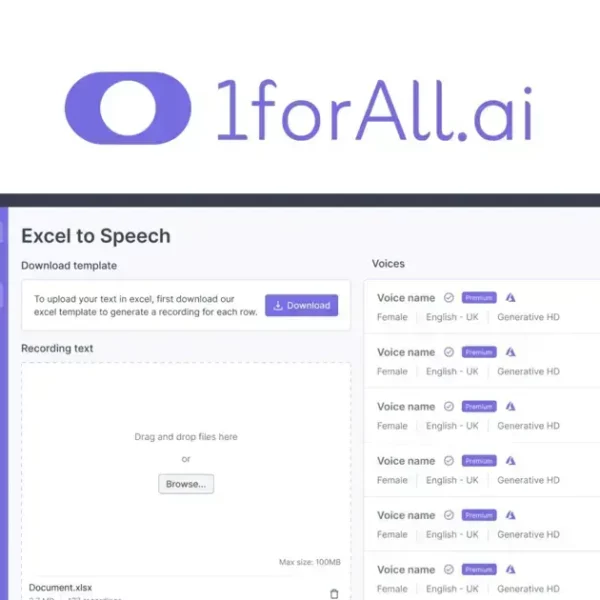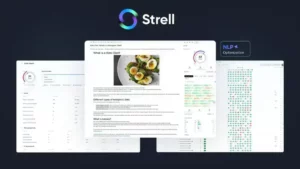Marketing automation for small businesses enhances efficiency by automating repetitive tasks, improving targeting, and streamlining communication. By leveraging the right tools and strategies, small businesses can significantly boost engagement and achieve their marketing goals effectively.
Marketing automation for small businesses is a game-changer! It offers a streamlined approach to managing customer relationships and marketing outreach. By integrating automation tools, even the smallest companies can achieve remarkable growth and efficiency. In this article, we will look into what marketing automation entails, its many benefits, implementation strategies, useful tools, and pitfalls to avoid.
What is Marketing Automation?
Marketing automation refers to the use of software and technology to automate repetitive marketing tasks and workflows. It allows small businesses to efficiently manage their marketing campaigns without requiring an overwhelming amount of time and effort. With marketing automation, businesses can streamline their processes and ensure consistent messaging across all channels.
Key Features of Marketing Automation
Some common features of marketing automation include email marketing, social media scheduling, lead generation, and customer relationship management (CRM). These tools can help businesses track customer interactions and personalize their marketing efforts.
How It Works
Marketing automation works by using data to create targeted marketing strategies. Businesses can segment their audience based on behavior, preferences, and demographics. This information is used to send relevant messages to the right people at the right time, improving engagement and conversion rates.
The Role of Analytics
Analytics plays a crucial role in marketing automation. By monitoring campaign performance, small businesses can gain insights into what strategies work best and where improvements can be made. This data-driven approach enables ongoing optimization of marketing efforts.
Who Can Benefit?
Marketing automation is not just for large companies; small businesses can greatly benefit as well. By automating time-consuming tasks, small business owners can focus more on growing their business, building customer relationships, and providing excellent service.
Benefits of Marketing Automation for Small Businesses

Marketing automation offers numerous benefits for small businesses, enabling them to compete effectively in a crowded marketplace. With limited resources, small businesses can leverage automation tools to enhance their marketing efforts without the need for a large team.
Time Savings
One of the most significant advantages of marketing automation is the time it saves. By automating repetitive tasks like email campaigns, social media posts, and lead nurturing, small business owners can focus on more critical aspects of their business, such as customer service and product development.
Improved Targeting
Marketing automation enables small businesses to segment their audience based on various criteria. This segmentation allows for tailored messaging that resonates with each group, improving engagement and increasing conversion rates. Personalized marketing can lead to greater customer loyalty and stronger relationships.
Increased Efficiency
Automating marketing processes boosts overall efficiency. Tools for scheduling posts, tracking interactions, and managing customer data ensure that marketing efforts are organized and effective. This efficiency can lead to a higher return on investment (ROI) for marketing campaigns.
Consistent Communication
With marketing automation, small businesses can maintain consistent communication with their audience. Automated emails, reminders, and follow-ups ensure that customers receive timely information, which enhances the customer experience and keeps the brand top-of-mind.
Data-Driven Insights
Marketing automation platforms provide analytics that help small businesses track the performance of their campaigns. Businesses can analyze data on customer behavior, engagement rates, and conversion paths. These insights guide marketing strategies, enabling businesses to optimize future campaigns for better results.
How to Implement Marketing Automation
Implementing marketing automation can transform how small businesses operate and engage with their customers. However, it’s essential to approach it strategically to ensure success.
Step 1: Define Your Goals
The first step in implementing marketing automation is to clearly define your goals. Decide what you want to achieve, such as increasing email open rates, generating more leads, or boosting customer retention. Setting specific, measurable goals helps create a focused strategy.
Step 2: Choose the Right Tools
Select the marketing automation tools that best fit your business needs. There are many options available, from comprehensive platforms that cover everything to niche tools that focus on email or social media automation. Look for features that align with your goals and budget.
Step 3: Segment Your Audience
Once you have your tools in place, segment your audience based on behaviors, interests, and demographics. This segmentation allows for personalized messaging that resonates with different customer groups. Tailoring content helps improve engagement rates and customer satisfaction.
Step 4: Create Compelling Content
Develop engaging and valuable content for your audience. This could be blog posts, emails, social media updates, or videos that align with their interests. Quality content is crucial for effective marketing automation, as it drives interaction and conversions.
Step 5: Monitor and Optimize
After launching your automated campaigns, continually monitor their performance. Utilize analytics provided by your marketing automation tools to evaluate engagement, open rates, and conversions. Make adjustments based on the data to improve your campaigns over time.
Best Tools for Small Business Marketing Automation

Finding the right tools for marketing automation is essential for small businesses looking to enhance their marketing strategies. Several platforms are tailored specifically for the needs of smaller enterprises, offering powerful features without overwhelming complexity.
1. HubSpot
HubSpot is a widely recognized tool that provides a comprehensive marketing automation solution. It includes email marketing, social media management, and analytics in an easy-to-use interface. HubSpot is especially great for small businesses due to its scalability and free tier option, allowing startups to grow into the platform.
2. Mailchimp
Mailchimp is known for its email marketing capabilities but has expanded to include more automation features. It helps small businesses manage mailing lists, create campaigns, and analyze customer engagement. With its intuitive design, Mailchimp is an excellent starting point for those new to marketing automation.
3. ActiveCampaign
ActiveCampaign combines email marketing, automation, and CRM features. This tool allows businesses to create complex automation workflows while also segmenting their audience for targeted campaigns. It is ideal for small businesses looking to enhance their customer relationship management alongside their marketing efforts.
4. GetResponse
GetResponse is another versatile tool focusing on email marketing, landing pages, and marketing automation. It offers simple drag-and-drop features for building campaigns and has built-in analytics to track performance. Its user-friendly interface makes it suitable for small businesses with limited technical expertise.
5. ConvertKit
ConvertKit is designed for creators, making it excellent for small businesses focused on content marketing. It enables users to automate emails, segment audiences, and create landing pages with ease. The focus on simplicity and reliability attracts many small business owners looking to grow their email lists.
Common Mistakes to Avoid in Marketing Automation
Marketing automation can greatly benefit small businesses, but there are several common mistakes that can hinder its effectiveness. Avoiding these pitfalls can lead to better results and a smoother implementation.
1. Not Defining Clear Goals
One major mistake is failing to establish specific, measurable goals before implementing marketing automation. Without clear objectives, it becomes challenging to measure success and effectiveness. Define what you hope to achieve, such as increasing leads or improving customer engagement.
2. Ignoring Your Audience
Small businesses often make the error of not segmenting their audience. Sending the same message to everyone can lead to low engagement. Always segment your audience based on their preferences and behaviors to send targeted, relevant content.
3. Over-Automating Communication
While automation helps save time, over-reliance on automated messages can make interactions feel impersonal. Maintain a balance between automated communications and personal touches. Occasionally, a human response will enhance customer experience.
4. Failing to Monitor Analytics
Another common mistake is neglecting to analyze the results of automated campaigns. Regularly checking analytics enables small businesses to understand what works and what doesn’t, allowing for adjustments that can improve overall effectiveness.
5. Skipping Testing Phases
Many businesses overlook the importance of testing different aspects of their campaigns. A/B testing can provide valuable insights into what messaging resonates best with your audience. Always test subject lines, email content, and messaging to optimize results.
Wrapping Up: Harnessing Marketing Automation for Growth
In summary, marketing automation is a valuable asset for small businesses. It can save time, improve targeting, and enhance customer relationships. By avoiding common mistakes like not defining goals or neglecting analytics, businesses can maximize the benefits of automation.
Implementing the right tools and strategies can lead to significant growth. Remember to segment your audience, balance automation with personal touches, and continuously test and adapt your approaches.
Embrace marketing automation as a way to streamline your efforts and achieve your business goals more efficiently.
FAQ – Questions About Marketing Automation for Small Businesses
What is marketing automation?
Marketing automation refers to the use of software to automate repetitive marketing tasks, helping small businesses manage campaigns more efficiently.
What are the benefits of using marketing automation?
Benefits include saving time, improving targeting, enhancing customer communication, and providing data-driven insights to optimize marketing efforts.
Which tools are recommended for small business marketing automation?
Popular tools include HubSpot, Mailchimp, ActiveCampaign, GetResponse, and ConvertKit, each offering various features suited for small businesses.
How can I avoid common mistakes in marketing automation?
Set clear goals, segment your audience, balance automation with personal touch, monitor analytics, and conduct regular testing to optimize campaigns.
Can marketing automation help with customer engagement?
Yes, marketing automation allows for personalized communication, timely messaging, and targeted campaigns that significantly enhance customer engagement.
Is marketing automation suitable for all types of small businesses?
Yes, marketing automation can benefit any small business, regardless of industry, by increasing efficiency and enabling better customer relationship management.




